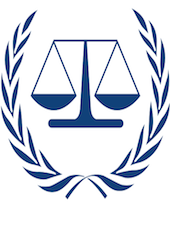Human Rights Day 2014: More Than an Irony?
The United States and Brazil issue landmark reports: How can the world really do better?
December 13, 2014

Did you notice the irony this week? On the one hand, the world celebrated International Human Rights Day on December 10, a commemoration of the Universal Declaration of Human Rights. It states every human being anywhere and at all times is entitled to the full range of human rights.
On the other hand, as if to underscore the importance of that mission yet sorely unfulfilled, we were also treated to the release of not just one, but two landmark reports that coincided with that commemoration day. The first one was issued in the United States on December 9, the second one in Brazil on December 10.
A tale of two reports
Much of the world’s attention has been on the report which California Senator Diane Feinstein released in the U.S. Senate following a five-year study on the abuses and torture perpetrated by the Central Intelligence Agency upon foreign prisoners taken after the attacks of 9/11.
4,400 miles (or 7,000 kilometers) further south, Brazil’s President Dilma Rousseff used the day to announce the findings of the country’s National Truth Commission Report. It documented the horrific acts of murder, torture and the disappearance of more than 400 civilians by the Brazilian military from 1964-85.
To Rousseff, that report was anything but an abstract matter. She was herself a victim of torture by the military regime.
Both reports underscored the ongoing challenges we face in living up to the principles of “never again” that originally led to the creation of the United Nations as well as the drafting of the Universal Declaration after the Second World War.
In the United States, the Senate’s meticulously documented report, based on evidence from contractors, secret government reports, as well as the testimony of victims, reaffirms that the national security state went berserk after 9/11.
That is a painful admission by the very country that likes to hold up its democracy as a model for the rest of the world.
Brazil’s response to the Truth Commission Report also bears considering. Speaking about the Commission’s findings, Rousseff said: “We hope this report prevents ghosts from a painful and sorrowful past from seeking refuge in the shadows of silence and omission.”
Emotions aside, the sad reality is that an amnesty law passed in Brazil in 1979 to protect the perpetrators of that violence is still on the books. The new report took the bold step of recommending its repeal.
Not one person has been prosecuted for crimes committed for human rights abuses during Brazil’s two-decade long dictatorship period, which began exactly half a century ago, in 1964.
A mentality of fear
Both the crimes committed in Brazil and by the United States, while decades apart, are the result of a mentality of fear that led nations to pursue those who were considered threats to its internal security.
The anti-Communist fervor in Latin America, in part stoked by the United States response to the Cold War, condoned military dictatorships as a necessary evil to prevent the Soviet Union’s influence in the Americas.
By the late 1970s, President Jimmy Carter began a campaign to bring the protection of human rights back to center stage as a core value of the U.S. relationship with Latin America. The policy led to the unraveling of some repressive regimes.
Those were the more glorious days of U.S. human rights policy. More than a decade after 9/11, we Americans are left with a profound question: How to deal with truth and accountability? Constantly referring to “external” and “internal” cannot explain away many of the abuses that have occurred.
Moreover, the evidence suggests that those torture actions, at the very best, do as much harm as good in terms of long-term prevention of terrorism.
In Brazil, the risks of not prosecuting those responsible for the deaths and disappearance of more than 400 citizens in the 1970s only reinforces a sense of impunity that has plagued the judiciary of Brazil ever since.
Governments need to be accountable
What is the point in having the nation’s constitution guarantee respect for human rights and due process, if no proper action is taken about the past crimes that were undeniably committed?
For a new generation of Brazilians, people who were not even born during those dark years of the dictatorship, the urgency of dealing with the past collides directly with the present.
What should happen today? In a nation where police are still literally allowed to get away with murder, the corrupt judicial system has been unable to provide much hope to the families of many victims. Yet Brazil, a leader of the Global South, is a democratic state.
What the two reports call into question are the limits of sovereignty when we are dealing with crimes of such gravity and with transnational implications. They clearly suggest that, in order to overcome the burdens of the past for real, it is impossible to leave punishment only to the state.
International law demands international justice. We must consider ways to manage these types of crimes in venues that provide justice and restore international confidence in the ability of democratic states to face up to violations of basic rights that compromise our security and freedom.
Democratic states may want to argue that using the international system may be too destabilizing and that therefore one must find other methods of managing the past.
Just look at the debate that still plagues U.S. participation in the International Criminal Court, which was founded in 2002 to address crimes against humanity and the prosecution of human rights violations.
But that is not a convincing argument. There cannot be one set of laws and rules applied to African despots – and quite another to Western governments. The rules ought to be the same.
And punishment, if any, ought to be meted out based on the gravity of the crime committed – and not reflect the cultural or developmental sphere one lives in.
As the world gradually learns the basic tenets of truly global justice, let us just resolve one thing: Strike all that vapid talk about “Never again!”
Resolute as that sounds, it is an empty phrase until a country’s government is ready to move toward having actual criminal proceedings into the matter. Until such time, however, it is a gross insult to the victims of the acts of torture that were undeniably committed.
Takeaways
Both the crimes committed in Brazil and by the US, while decades apart, are the result of a mentality of fear.
Americans are left with a profound question after the CIA report: How to deal with truth and accountability?
What are the limits of sovereignty when dealing with crimes of such gravity and with transnational implications?
There cannot be one set of laws and rules applied to African despots – and quite another to Western governments.
Strike all that vapid talk about “Never again!”

